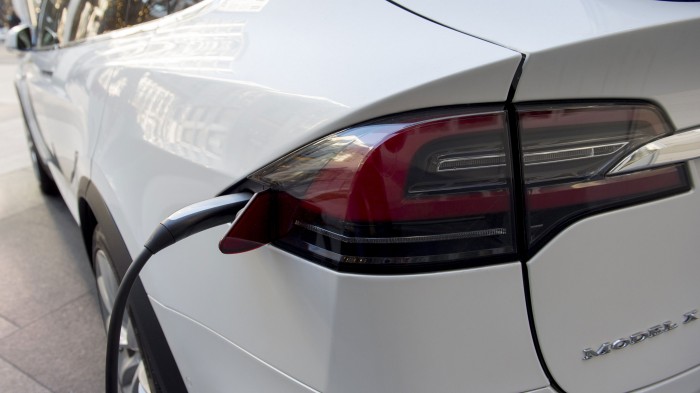How America’s Electric-Car Market Could Get Stuck in the Slow Lane

In many ways, the future looks bright for battery-powered vehicles. Automakers are readying cars at a rapid rate. And because battery prices continue to fall, manufacturers are now able to start releasing more affordable vehicles—including the Tesla Model 3, Chevrolet Bolt, and Renault Zoe, which are all expected to go on sale this year.
But it’s not all good news—state and federal regulations that have been helping fuel consumer demand for electric cars are in danger of disappearing. The New York Times points out that on the state level, tax breaks on electric cars are already beginning to slide. States including Tennessee, Illinois, and Pennsylvania have all allowed their incentives to come to and end, meaning that only 16 states now offer them—down from 25. Others may soon follow: lawmakers in Colorado and Utah are currently trying to end their tax credits.
The existing tax breaks vary in generosity, from up to $9,500 in Louisiana and (currently) $5,000 in Colorado to sales and excise tax exemptions in New Jersey and Washington, D.C. Buyers also get to take advantage of a $7,500 federal tax credit on new electric cars, but that may yet be reduced or eliminated by the Trump administration.
Those seeking to stop such incentives argue that they merely benefit the wealthy, who are currently the only real market for electric cars. But if tax breaks do continue to be axed, consumers will become more reluctant to buy new electric vehicles. And if Donald Trump goes ahead with plans to roll back Obama’s fuel efficiency regulations for new gas-guzzling vehicles, U.S. automakers will lack an incentive to build new electric cars.
Last year, a report by Bloomberg New Energy Finance and McKinsey suggested that two-thirds of all cars on the road in some wealthy cities could be electric by 2030. But it also warned that adoption of electric vehicles would be much slower without regulatory incentives to boost consumer interest.
Many parts of Europe are pushing ahead with strict new policies to discourage people from running regular, polluting cars—banning diesel cars from city centers, for instance, and mandating the buildout of supporting infrastructure for electric vehicles. The U.S. could find itself chewing electric-car dust if it doesn’t make the correct policy decisions in the coming years.
(Read more: New York Times, “Here’s How to Speed Up the Electric-Car Revolution,” “Four Huge Cities Are Banning Diesel Cars,” “The Paris Motor Show Confirms It: The Future Is Electric”)
Keep Reading
Most Popular
Large language models can do jaw-dropping things. But nobody knows exactly why.
And that's a problem. Figuring it out is one of the biggest scientific puzzles of our time and a crucial step towards controlling more powerful future models.
How scientists traced a mysterious covid case back to six toilets
When wastewater surveillance turns into a hunt for a single infected individual, the ethics get tricky.
The problem with plug-in hybrids? Their drivers.
Plug-in hybrids are often sold as a transition to EVs, but new data from Europe shows we’re still underestimating the emissions they produce.
Google DeepMind’s new generative model makes Super Mario–like games from scratch
Genie learns how to control games by watching hours and hours of video. It could help train next-gen robots too.
Stay connected
Get the latest updates from
MIT Technology Review
Discover special offers, top stories, upcoming events, and more.